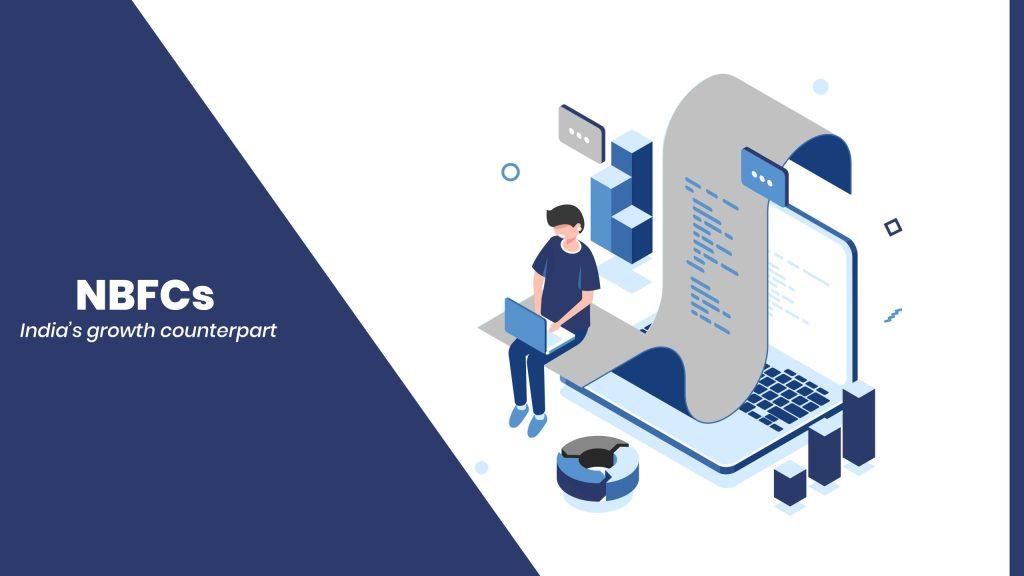Economy and Agrochemical Sectoral Landscape
Covid-19 has distorted the vision and assessment prowess of all the experts of economy. However, after bearing the brunt of the coronavirus pandemic and the consequent lockdown, the Indian economy seems to be getting back on track. All its economic and business metrics are returning to their pre-covid levels. A primary reason behind India successfully tiding over the economic slowdown that followed the announcement of lockdown was the resilience of its agriculture sector.
The contribution of the agriculture sector to the Indian economy that has averaged around 28% in the last 60 years, has remained largely unaffected by the pandemic. In the previous financial year, the value addition by Indian agriculture stood at a mammoth $459 billion. This stands towering over the global average of $20.85 billion. India is among the largest producers of agrochemicals in Asia and produces about 9 lakh tonnes of agrochemicals annually, of which roughly 50% are exported. However, its agrochemical consumption stands at a meagre 0.57 kg/hectare, but the agrochemical market is expected to clock a Compounded Annual Growth Rate (CAGR) of 8% over the period 2020 to 2027.
There has been a renewed focus on increasing the agricultural yield in India. And it is suggestive that there is huge scope in the agrochemical space. In the wake of the above, the article digs deep into various aspects related to PI Industries, which has been one of the foremost players in the Indian Agrochemical market and that analyzes its strong foundation. Offering integrated and innovative products, PI Industries has a remarkable brand recognition and strong global presence, which is here to stay for a while.
Company Profile
It was a year before the country’s independence when renowned businessman, Mr PP Singhal, founded PI Industries. Incorporated in 1947, PI Industries was a pioneering enterprise to venture in pesticide business and made immense contribution in the first Green Revolution of India. It emphasises on complex chemistry solutions in agro and pharma sciences, and has core competency in that.
The company has been constantly featured among the major agrochemical players in India by successfully leveraging its capabilities and providing comprehensive, integrated, innovation-led and value-added solutions to its customers. Built on IP protection and partnering with the best, it has developed a niche position for itself. Through the technologically-enabled distribution network and evolution, it has relentlessly given value-added offerings to more than 2.5 million farmers both in India as well as across the globe.
The company has strong technical expertise and capabilities in the domains of R&D, manufacturing services, distribution and customer relations, which have enabled the company to increase its sales growth by 6 times, operating profit growth by 8 times, net profit growth by 10 times and the overall market capitalization by 70 times within a decade’s span (2010 – 2019).
Currently, it operates with 5 formulation facilities and has 13 multi-product plants, that are accountable for using globally certified innovative technologies to manufacture various agro-inputs, which include agrochemicals, plant nutrients, seeds, and specialty fertilizers.
The company has partnered with more than 20 global corporations and has exclusive rights with the same for distribution in India. On the back of such exclusive engagements with renowned agrochemical, fine chemical and pharmaceutical companies across the globe, PI Industries has built a strong product portfolio. Through its intensive R&D activities, it is striving to further expand this portfolio.
R&D expenses form a sizeable portion of the total expenses of the company and have been accelerated. Given that, 10% of the company’s workforce, works in R&D facility at Udaipur bears testimony to this fact. These innovators focus on core competencies to facilitate strong growth in the custom synthesis and manufacturing (CSM) segment, which accounts for two-thirds of the revenues of the company
Its such strong R&D strategy that has enabled the company to foray into pharmaceuticals as well as chemicals segments. Moreover, the company’s farm automation services are in the process of transitioning from pilot phase to the commercialization phase. Once commercialized, these automation services are expected to significantly enhance revenue streams.
Value Proposition
• PI Industries has unique and non-conflicting business model, which is strengthened with …global innovators.
• The company presence is driven by strategic partnerships. It has invaluable relationships with 20+ …global innovators and it is built on IP protection.
• ~90% of CSM revenue is derived from patented molecules and more than 60% of domestic revenue …comes from in-licensed molecules.
• The agrochemical is now diversified with pharma foray and has scaled up.
• PI Industries has a promising opportunity landscape as global specialty chemicals market is expected to grow at 5.4% CAGR between 2019 and 2024; global supply chain diversification and M&A activities to aid specialized CSM players.
• PI Industries can vouch on its strong assets. It has an invaluable team of ~300 researchers and scientists, 5 formulation facilities, globally certified technologies, tech-enabled distribution network and relationships with over 2.5 million farmers.
• Lastly, it has the track record on being consistent with Revenue CAGR (10 years) of 17.68%
FY2020
The financial year 2020 proved to be a substantial year for PI Industries. The company’s revenue for the year stood at INR 33,068 million which indicates a growth of 16.4% over the last year’s revenue and recorded yearly profit of INR 4,423 million. It has recorded a CAGR of 10.22% in Revenue from Operations and 12.79% CAGR in PAT
FY20 has been good for PI Industries and has added some key milestones to its journey. The acquisition of Isagro (100% shareholding) was beneficial as growth was 10% YoY. Significant synergy is expected from this deal in the CSM business as well as the domestic formulation business, as Isagro Asia is into the business of contract manufacturing, local distribution and exports of agrochemical products. More than 60% of its INR 3 billion revenue, in the FY19, came from its domestic formulation business. Apart from the acquisition, it has signed agreement to in-license 2 new products for farm and PPM segment.
The company closed the year FY20 with a strong residual order book of more than $1.5 billion and 60 molecules in R&D pipeline. The near future looks promising as it has registered Dossier for new miticide and has filed 22 patent applications. The progress is significant has the inquiry flow and process scale-up has been increased.
PI Industries recently raised INR 2,000 crore through Qualified Institutional Placements (QIPs) which garnered positive response from investors. The share sale proceeds from the QIPs would be deployed in M&A and used for expanding, scaling up new and innovative technologies and foray into the specialty chemicals, imaging, and pharmaceuticals business. The monetization from these investments is expected to achieve returns 2-3 years since execution.
It has also planned a capital expenditure of INR 1,828 crore over the financial years 2020 through 2022 to build new capacity and support utilities. Even if PI Industries takes additional debt, it will not substantially increase the debt load of the company as it is almost debt-free.
Recent statutory initiatives for the agriculture sector
India has incredible potential in agriculture, but archaic laws and regulations have held back investments and weakened efficiency of production. There has not been any major reform since decades, and a step in right direction was much needed to give historical boost. The government has initiated revolutionary agriculture reforms to end the trader’s monopoly. The Agriculture Bills have received President’s nod are listed as follow:
Farmers’ Produce Trade and Commerce (Promotion and Facilitation) Bill, 2020
This Bill aims to help the farmers secure remunerative prices by supplementing the existing MSP procurement system and creating additional trading opportunities outside the APMC market. The farmers shall be free to sell their produce to anyone. Further, there shall be no barriers for intra and inter state trade in agricultural produce. This shall end the monopoly of traders and increase the income of the farmers.
Farmers’ (Empowerment and Protection) Agreement of Price Assurance and Farm Services Bill, 2020
This Bill provides a national framework on farming agreements to protect as well as empower farmers to engage with agro-business firms, wholesalers, aggregators, processors, exporters or large retailers for farm services and sale of future farming produce at a mutually agreed remunerative price framework in a fair and transparent manner. This Bill shall transfer the market risk from farmer to sponsor.
The Essential Commodities (Amendment) Bill 2020
Cereals, pulses, oilseed, edible oil, onion and potatoes are no longer part of essential commodities. This further, this bill further helps to remove imposition of stock limit except under unique circumstances. Thereby, ends the nuisance of businessman and traders.
These Bills lifts restrictions on marketing of agricultural produce by the farmers. This in turn allows entrance of private capital in the agricultural landscape and link farms to global markets. The agriculture sector is expected to witness a substantial boost, which fares well for the agrochemical sector and, in turn, for PI Industries.
Pesticides Management Bill, 2020
In the budget session of the Parliament held in the month of February this year, an important bill called the Pesticides Management Bill, 2020 was taken up for consideration. The bill seeks to regulate the pesticides business in the country. Once passed by the Parliament, it will compensate the framers for any crop losses arising from the use of low quality or spurious pesticides. The bill requires manufacturers to disclose all relevant product-related information like usage instructions, efficacy, expected performance, effects on environment, and safety, among other things.
As the Pesticide Bill deters production of sub-standard pesticides and has provisions for monetary compensation of the farmers, it is bound to have favorable effects on PI Industries, which is known for its high-quality products.
Associated Risks and Mitigation and other solutions
There are various risks inherent in the overall agriculture sector and, specifically in the agrochemical industry and the company. Indian agricultural sector is still largely dependent upon the vagaries of the monsoon. Along with this, the company faces various business and financial risks which include failure of on-going researches to translate into development and, ultimately, the commercialization of products, currency risks due to significant exports, execution risks associated with running projects, and so on.
PI Industries must continue to have a strong pipeline of products going forward to effectively counter the risks associated with product failure during research, development or commercialization stage. The company must use hedging techniques to safeguard its revenue streams from currency risk arising from the export of products
The states of Punjab and Uttar Pradesh are considered very crucial from an agricultural perspective. Unfortunately, PI Industries lacks any material presence in these states. Any successful expansion into these states is bound to considerably reduce the supply chain and distribution costs of the company. Furthermore, even in terms of major geographic segments, the company is only present in the north-west parts of the country. A large portion of demand for pesticides comes from southern and western states, where that company has a negligible presence.
PI Industries’ strong financial performances, strong product pipeline, and debt-free balance sheet can help the company in raising external debt financing to finance such expansions.
Conclusion
With a new global chemical order- Resilent & Resolute, the expectations of stakeholders from PI Industries have increased. PI Industries usher into a new decade with positivity and raised the bar. With favorable economic and agrochemical sectoral landscape, the company is geared to show accelerated growth. This is backed by well integrated capabilities given its partnership approach of business.
Covid-19 pandemic, has hit the economy worldwide. However, PI Industries was able to resume its operations from April 20 in a gradual manner and no significant impact has happened on the current and future business condition. The road map, further looks brightened due to the major agriculture reforms that took place this year.
With the unique business model and adjacencies, and focus on sustainable solutions, PI Industries is here to stay and Lakewater Advisors recommends it.
Reference
https://www.theglobaleconomy.com/India/Share_of_agriculture/
https://www.theglobaleconomy.com/India/value_added_agriculture_dollars/
https://bit.ly/2KD5cL9
http://www.agrospectrumindia.com/news/48/1280/india-agrochemical-market-to-grow-fast-with-cagr-8.html
https://www.piindustries.com/Media/Documents/Annual%20Report%20FY%202019-20.pdf
https://www.livemint.com/companies/news/pi-industries-approves-issue-price-of-rs-1470-for-qip-11594269386238.html
https://bit.ly/37k6Wk8
https://www.cropin.com/blogs/a-quick-review-of-pesticides-management-bill-2020-india/




